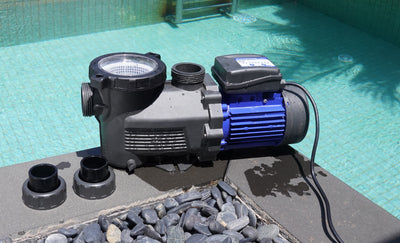Pool Cleaning 101: Why, When, and How to Clean Your Pool
Owning a pool is a joy, but keeping it clean requires regular effort. While swimming in crystal-clear water is the ultimate goal, pool cleaning is essential for maintaining the health and safety of your pool. If you’ve been avoiding it, now’s the time to get serious about pool maintenance. Here’s everything you need to know about cleaning your pool the right way.
Why Is Pool Cleaning Important?
You might wonder why you need to clean your pool when you already use chlorine or other sanitizing chemicals. After all, these chemicals help keep the water clear, right? While it’s true that chemicals are necessary to kill bacteria and algae, they don’t do the whole job. Just like how soap and shampoo don’t prevent soap scum in your shower, pool chemicals won’t keep your pool surfaces free of dirt, leaves, bugs, and algae.
Regular cleaning is necessary to ensure your pool remains safe, inviting, and functional. Skipping cleaning can lead to a buildup of debris and algae, making the water unswimmable and even causing damage to your pool equipment.
When Should You Clean Your Pool?
The key to maintaining a clean pool is consistency. Here’s a basic cleaning schedule to help you stay on top of it:
- Daily: Skim the surface of your pool to remove floating debris such as leaves and bugs. This prevents debris from sinking and making your pool harder to clean later.
- Twice a Week: Brush the walls, floor, and corners of your pool. This will help dislodge dirt and algae before it can grow.
- Every Other Day: Vacuum your pool to remove debris from the bottom.
- Regularly: Check and clean your pool filter to ensure it’s working properly.
Essential Pool Cleaning Tools
To make the job easier, having the right tools is crucial. Here are the basic items you’ll need:
1. Telescopic Pole
This versatile tool allows you to attach various cleaning heads such as skimmer nets, brushes, and vacuum heads. A high-quality telescopic pole will let you reach all corners of your pool without straining. We recommend an 8-foot pole that extends to 16 feet for maximum reach.
2. Skimmer Net
A skimmer net is perfect for removing leaves, twigs, bugs, and other floating debris. It’s best to go with a heavy-duty, flat skimmer net for easy cleaning and durability.
Tip: Skim the surface of your pool daily to prevent debris from sinking.
3. Pool Brush
Brushing your pool’s walls, ladders, and floor removes dirt and algae. The type of pool brush you need depends on your pool's surface material:
- Concrete Pools: Use a brush with stainless steel bristles.
- Vinyl or Fiberglass Pools: Use a brush with nylon bristles only.
We recommend investing in a heavy-duty brush that can withstand regular use.
Tip: Brush at least twice a week to keep your pool surface algae-free.
4. Pool Vacuum
A pool vacuum is essential for removing debris from the bottom of your pool. Manual vacuuming requires a telescopic pole, a vacuum head, and a hose. While manual vacuums are effective, robotic pool cleaners can make the job much easier.
Tip: Vacuum your pool every other day or as needed, especially after storms or heavy debris buildup.
5. Robotic Pool Cleaner
A robotic pool cleaner is a game-changer. It automatically moves around your pool, sucking up debris while you relax. While these are more expensive than manual vacuums, they save time and effort, making pool cleaning easier.
Additional Pool Maintenance
In addition to cleaning the pool, you should also take care of the surrounding areas to prevent debris from getting back into the water:
Pool Deck
Keep your pool deck clean by sweeping or spraying it down regularly. For extra cleanliness, you can disinfect it with a pool deck cleaner. If your deck is large, consider using a pressure washer to make the job quicker and easier.
Pool Filter
No matter how much you clean, if your pool filter is clogged, your water will remain dirty. Cleaning your filter regularly is essential for maintaining the efficiency of your pool’s filtration system. Depending on the type of filter (sand, cartridge, or DE), follow the manufacturer’s instructions for cleaning.
Tip: Clean your pool filter at least once a month to keep it in top shape.
How to Prevent Future Pool Cleaning Hassles
To keep your pool cleaner for longer, here are a few additional tips:
- Cover Your Pool: When your pool isn’t in use, consider using a pool cover to keep debris out.
- Monitor Water Chemistry: Regularly test and balance the water’s pH, alkalinity, and chlorine levels. Proper water chemistry helps prevent algae growth and makes cleaning easier.
Conclusion
Maintaining a clean pool doesn’t have to be a chore. With the right equipment and a regular cleaning routine, your pool can stay sparkling and ready for swimming all year long. Keep your pool tools in top condition and remember: prevention is the key to making pool cleaning easier.
At AQUASTRONG, we provide everything you need to keep your pool clean and functional, from high-quality pool equipment to expert advice. Ready to dive into cleaner waters? Start with a plan and the right tools to ensure your pool stays clean and safe.

